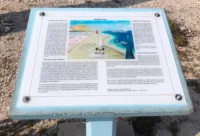
On Ukraine’s front lines, frustration and determination
There was something surreal in discussing the possibility of a wider Middle East war while outside, in the most exposed of Ukrainian towns, the air-raid sirens were wailing, signaling a threat of a wider European war.
Last weekend in Kharkiv, as in so many other places, Iran’s attacks on Israel were the talk of the town. Standing on the city’s empty Freedom Square, my friend Olga Shpak — a volunteer with Assist Ukraine — and I were weighing what the possible scenarios mean for Ukraine. The optimistic approach went: If Israel hits Iran, perhaps there will be fewer Iranian-made Shahed drones for Russia to use against Ukraine?… Seguir leyendo »














